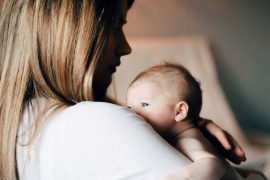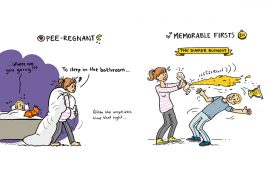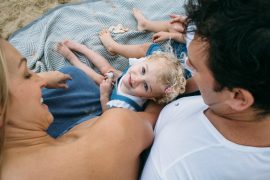By Sarah R. Moore
We all make mistakes as parents. And while we know that’s true, it feels absolutely awful when we make them-especially when we see the effects linger in the hearts of our little ones after the initial storm has passed. A mistake that causes an emotional hurt, in attachment theory terms, is called a rupture. Ruptures are exactly what they sound like: breaks. In this case, they temporarily damage relationships. Fortunately, they have a counterpart called repair. If repair is completed successfully, the relationship can grow and strengthen despite and even, perhaps, because of the rupture.
Still, when ruptures happen, they can feel confusing to children. Some children will wonder, “My big person is mad. Maybe they won’t love me anymore.” (Perceived permanence.) Or “My big person isn’t acting normal today. Maybe it’s because I’m not worthy of their love or attention.” (False belief with internalising.)
Of course, we still love our kids and we know that no experience, regardless who caused the rupture, can make a child unworthy of love.
As a result, it’s important that we work through the rupture and repair cycle fully with a child when a rupture happens.
I’ll share an example of how the rupture and repair cycle worked in my own home one day. I’d woken up with a headache. By the time my child and I finally made it to the kitchen (after she’d needed to do 55 different things before we even left her bedroom), I was hungry and had a headache. The night before, I’d promised her homemade pancakes in the morning, so I started feeling anxious to boot. I knew I’d either get hungrier and more anxious before they were ready-or have to disappoint her with a broken promise. I’ll spare you the rest of the details, but suffice it to say that my tone and attitude were not typical for me. I was incredibly grouchy. Think Momzilla. Indeed, not flattering.
In short, I scared her because my demeanor was not what she’d come to expect. Emotional predictability helps children feel safe, and I’d failed to provide that to her that morning. That was the rupture. Although I didn’t yell or do anything that most people would find “scary,” my snippy and critical behavior had the same effect on her. In her words, through her sobs, she told me, “Mummy, you’re just…not being kind.”
My heart sank. I took a moment alone in the other room so I could regroup a bit.
When I returned, I apologised sincerely, admitted the specifics of my wrongdoing, and asked if we could please have a do-over when she felt ready for it. I told her how much I love her and how she deserves kindness; it was wrong of me to take out my frustrations on her through my tone and general unkindness. This was the first part of my repair.
An important statistic to keep in mind when it comes to rupture and repair, however, is that it takes on average five good experiences with someone we love to counteract a single negative encounter with them.
Knowing that, I made a conscious effort to connect with my child more than five times that day. Some days, however, it takes a bit of extra effort beyond the minimum of five positive, counteracting behaviours.











